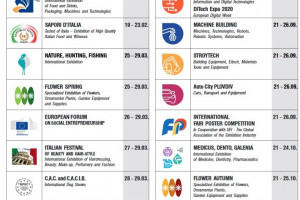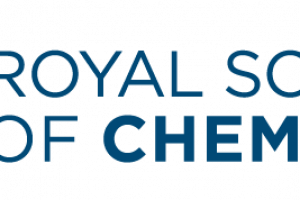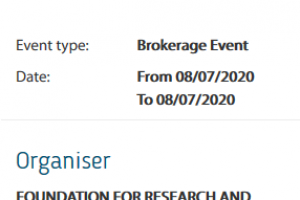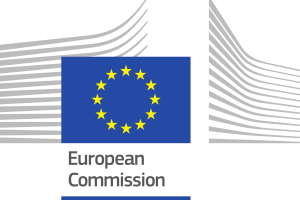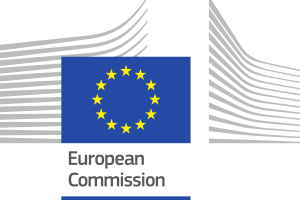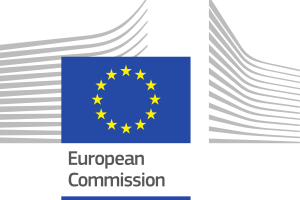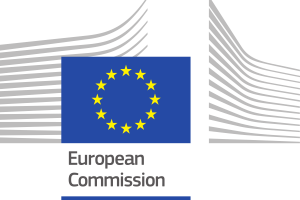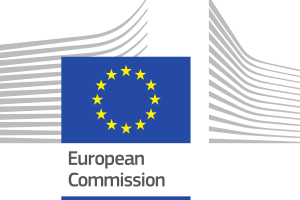By accessing and using the website WWW.BMBPAGES.NET you accept this policy without restrictions or conditions.
Therefore, your visit to the website
WWW.BMBPAGES.NET becomes subject to this policy and terms, as well as to all applicable laws. If you do not agree to these terms, please refrain from using
WWW.BMBPAGES.NET.
The contents of the website
WWW.BMBPAGES.NET are the property of the Human Resources Development Agency. These terms settle the relationship between the Human Resources Development Agency, with headquarters and business address in the city of Ruse, 14 Kresna Str., BULSTAT 117621322, hereinafter referred to as HRDA or
WWW.BMBPAGES.NET on the one hand and a person or entity, unincorporated company, state or municipal office or other entity on the other hand, who has loaded the domain
WWW.BMBPAGES.NET in their browser or has been granted access in any other way to the contents of the website
WWW.BMBPAGES.NET. The online catalogue is created and maintained by HRDA and is located at the following web address:
WWW.BMBPAGES.NET.
Through the online catalogue the users are given the possibility to obtain the website information or to use it in the manner described in these General Terms upon the explicit acceptance by the users. The use of the catalogue by the consumers is taken as agreement to the Terms of use. In case of disagreement users are exempt from commitment to use the services of the business catalogue.
WWW.BMBPAGES.NET provides its services without accepting any liabilities for any physical or logical problems that might arise in the user’s computers such as loss of information, the presence of viruses or others.
WWW.BMBPAGES.NET gives opportunity for advertising in the business catalogue to all companies in civil circulation.
All services offered by
WWW.BMBPAGES.NET can be used only for activities that are not prohibited by law.
Sending of unsolicited bulk mail and/or generating of electronic messages with malicious purposes is contrary to the policy of
WWW.BMBPAGES.NET.
Promotional messages sent through the ‘keywords’ service to multiple clients on the catalogue, who have not requested to receive such information, are classified as unsolicited bulk mail.
Although
WWW.BMBPAGES.NET makes all reasonable effort to ensure the accuracy of all the information on the website, its accuracy cannot be guaranteed and
WWW.BMBPAGES.NET accepts no responsibility for the correctness and authenticity of any of the information on this website since the information on
WWW.BMBPAGES.NET is submitted by the companies advertising their activity, products and services.
Users are not allowed without the explicit written consent of HRDA, manually or by computer programmes /scripts, bots or others/, to extract the content or part of the content of the website
WWW.BMBPAGES.NET, including data provided by clients, which by its wording, layout or structure are subject to copyright, neither are they allowed to copy the photographs, graphics, logos or other materials found on the website.
The client and the user is authorised to use the information on
WWW.BMBPAGES.NET, however they are not authorised to download it in any way nor to sell, resell or provide it to third parties.
WWW.BMBPAGES.NET reserves its right to make changes on the design of the company accounts as well as on the information on it at any time without prior notice and at its sole discretion with a view of the better performance of the given product or service.
WWW.BMBPAGES.NET bears no responsibility if the services it provides do not meet your requirements or expectations.
WWW.BMBPAGES.NET is not liable for the accuracy, timelessness and security of the communication, information and content.
WWW.BMBPAGES.NET cannot guarantee that the website will be continuously available and/or with no technical problems.
WWW.BMBPAGES.NET does not accept responsibility for material or personal damages resulting from the use of this website.
WWW.BMBPAGES.NET does not assume any liability for compensation with respect to any direct or indirect, consequential or special damages arising from or connected in any way to the access to or use of this site
WWW.BMBPAGES.NET.
Database, information about companies on
WWW.BMBPAGES.NET, the available on the website logos, photographs, images, texts or wording, layout or structure of the data, available on the site, are copyrighted. All financial and organizational initiative for the collection, control and selection of the information available from the domain
WWW.BMBPAGES.NET, is the product of HRDA.
The database of
WWW.BMBPAGES.NET is publicly available to be used by users and clients. The copyright on databases belongs to the person who made the selection and arrangement of the information included.
ABOUT: USING THE WEB PAGE
WWW.BMBPAGES.NET
In force from 25.05.2018
INTRODUCTION
In carrying out its activity The Human Resources Development Agency (HRDA), UIC 117621322, with headquarters and management address: Ruse, 14 Kresna str. ("The association", " HRDA ", "we", "us"), processes information, including personal data.
The website
WWW.BMBPAGES.NET is owned by The Human Resources Development Agency and is managed by the Association in accordance with the provisions of the General Data Protection Regulation including the associated legislation, but not limited to Regulation (EU) 2016/679 (“GDPR”).
This policy is intended to inform about the way we process your personal data as an administrator and about your rights. HRDA strives to provide you with accessible and useful information on its website.
Data protection is extremely important to us. HRDA does not sell your data to other enterprises or persons. If we provide your data to third parties, they are our contractors who process the information on our behalf, following our instructions and applying our privacy standard about the protection of your personal data. We strive the information we provide about the processing of your personal data to be as clear, specific and transparent as possible.
WHAT ARE PERSONAL DATA
Personal data are any kind of information related to an identified or identifiable person (such as email, names, age, date of birth, telephone, etc.).
Personal data revealing race or ethnic origin, political opinions, religious or philosophical beliefs or membership of trade unions and processing of genetic data, biometric data for the purpose of identifying a person, health or sexual life data or the sexual orientation of a person are a special category of personal data. HRDA does not process such information for you.
COLLECTION AND USE OF PERSONAL DATA
HRDA collects, uses, stores and processes your personal data that are required by the Аssociation for the services that HRDA provides. Your data is used to manage your account on our website. They can also be used for statistical purposes of the Association, which are related to improving the quality of our services. Your data is used to manage your account on our website. They can also be used for statistical purposes of the Association, which are related to improving the quality of our services.
Below are examples of the types of personal information that HRDA can collect and how we can use it. You will find detailed information on the different types of data that can be collected, when you use the relevant HRDA service and provide information to the Association.
WHAT PERSONAL INFORMATION WE COLLECT
For creating an enterprise profile, for registration in our website, - the names of the enterprise , electronic and physical address of the enterprise, contact person in the enterprise - position, office telephone and e-mail;
For managing the access and to identify your account - an email address and a password;
For participation in online research and other marketing activities - different types of information, including, but not limited to, your name, your mailing address, your phone number, your email address, the way you prefer to be contacted
FOR WHAT PURPOSE AND ON WHAT GROUNDS WE USE YOUR PERSONAL INFORMATION
The main activities, purposes and reasons related to processing of personal data for HRDA are
Management of your profile on our website:
Data related to the management of your access (identification), based on your given consent;
Marketing activities of the Association on the basis of your consent.
The personal information we collect allows us to keep you up-to-date on upcoming events. It also helps us improve our services and content. If you do not want to appear in our list of addresses, you can unsubscribe at any time by updating your account and website preferences.
We may periodically use your personal information to send important messages as notifications about our terms and policies.
We may also use your personal information for internal purposes such as checkups, data analysis, and research to improve the services and communication with the HRDA clients.
DISCLOSURE OF YOUR PERSONAL DATA
In some cases, HRDA may disclose certain personal information to strategic partners - subcontractors who work with us providing services related to the activity of the Association or help HRDA with the marketing to customers. Personal information will be shared by us only in order to improve our services and advertising; it will not be shared with third parties for their marketing purposes.
In cases where HRDA shares information about you with third party - HRDA providers, the Association has mechanisms to ensure that they provide a level of data protection according to the agreed standard. Your data are considered confidential for our partners too.
It may be necessary - by law, in court trial, litigation and / or upon request by public and governmental authorities in or outside your country of residence - HRDA to disclose your personal information. We may also disclose information about you if we find that such disclosure is necessary or appropriate for purposes of national security, law enforcement or other matters of public concern.
We may also disclose information about you if we establish that such disclosure is reasonably necessary for the implementation of our Terms and Conditions or to protect our activities or users. Furthermore, in case of reorganization, merger or sale, it is possible to transfer any and all collected personal information to the third party concerned.
TRANSFER IN THIRD COUNTRIES
As a rule HRDA does not transfer your data to third countries outside the EU. In some cases, your data may be transferred to third countries by means of a contract between HRDA and an enterprise / organization acting as a contractor for certain services or a partner on projects funded by the European Union funds. In these cases, HRDA guarantees that this transfer is carried out in full compliance with the legal provisions, thus ensuring the level of protection of your data (including but not limited to the conclusion of standard transfer clauses approved by the European Commission). The protection of information remains with your data. If our partners are located in the US, we check their Privacy Shield certification, which is a legal mechanism for transferring data to that country.
PROTECTION OF PERSONAL INFORMATION
HRDA takes precautions - including administrative, technical and physical measures - to protect your personal information from loss, theft and misuse, as well as from unauthorized access, disclosure, change or destruction.
Online service - ELECTRONIC PORTAL uses secure encryption on all webpages that collect personal information.
When posting in forums, chat rooms or social networking services, the personal information you share is visible to other users and can be read, collected, or used by them. You are responsible for the personal information you choose to provide in these cases.
All employees of HRDA are obliged to protect the confidentiality of your information, and to take the applicable technical and organizational precautions to protect it. Access to your data is limited to the extent of the necessity for performing their duties.
For cases where HRDA shares information about you with third parties – provider of HRDA, the Enterprise has mechanisms to ensure that it provides a level of data protection according to the agreed standard.
STORAGE OF PERSONAL INFORMATION
We will retain your personal information for a period that is required to meet the objectives set forth in this Privacy Policy unless we are legally obliged to keep it for a longer period. Depending on the type of data and the purposes for which they are collected, a storage period is defined with the expiration of which the information is permanently deleted.
YOUR RIGHTS IN RELATION TO YOUR DATA
If you have provided your personal data to the HRDA, you have the following options at any time:
verify the accuracy, completeness and up-to-date status of your contact information by logging into your account at WWW.BMBPAGES.NET;
the right of access to your personal data processed by the HRDA;
the right to request appropriate correction, deletion or blocking of your personal data;
the right of portability of data in a structured, widely used and machine-readable format;
the right to object at any time against the processing of your personal data when there are legitimate reasons for doing so;
the right to refuse the processing of your personal data for the purpose of receiving an electronic newsletter and other marketing communications, etc.;
the right to complain to the Commission for Personal Data Protection if you believe that your data protection rights have been violated.
If you wish to exercise your rights or to refuse to receive the electronic bulletin and other marketing communications, you can contact us by sending a message to hrda@smebg.net or by sending a letter to the following address: Ruse, 14 Kresna Str., Human Resources Development Agency.
We may refuse to process requests that are unreasonably duplicated, require disproportionate technical efforts, jeopardize the confidentiality of other users, requests which are extremely impractical or request, for which otherwise access is not required by law.
The exercise of your rights, when they are not repetitive and unreasonable, is not subject to a fee.
CHILDREN
We do not collect personal information about children under the age of 14. If we learn that we have collected personal information about a child under the age of 14, we will take steps to delete the information as soon as possible. If parents and / or legal representatives of children find that children under their guardianship have provided their data to the HRDA, contact us at the contact addresses listed in this policy. We will delete the information as soon as possible.
VALIDITY AND UPDATE OF POLICY
We may periodically update our Personal data protection policy. If there is a change in the current one, a notice will be published on our website together with the updated Personal data protection policy.
CONTACT DATA
IF YOU WANT TO CONTACT US ON ISSUES RELATED TO THIS POLICY OR THE PROTECTION OF PERSONAL DATA IN HRDA, PLEASE CONTACT US IN THE FOLLOWING WAYS:
At email:
hrda@smebg.net
By mail: Ruse, 14 Kresna Str., Human Resources Development Agency.


